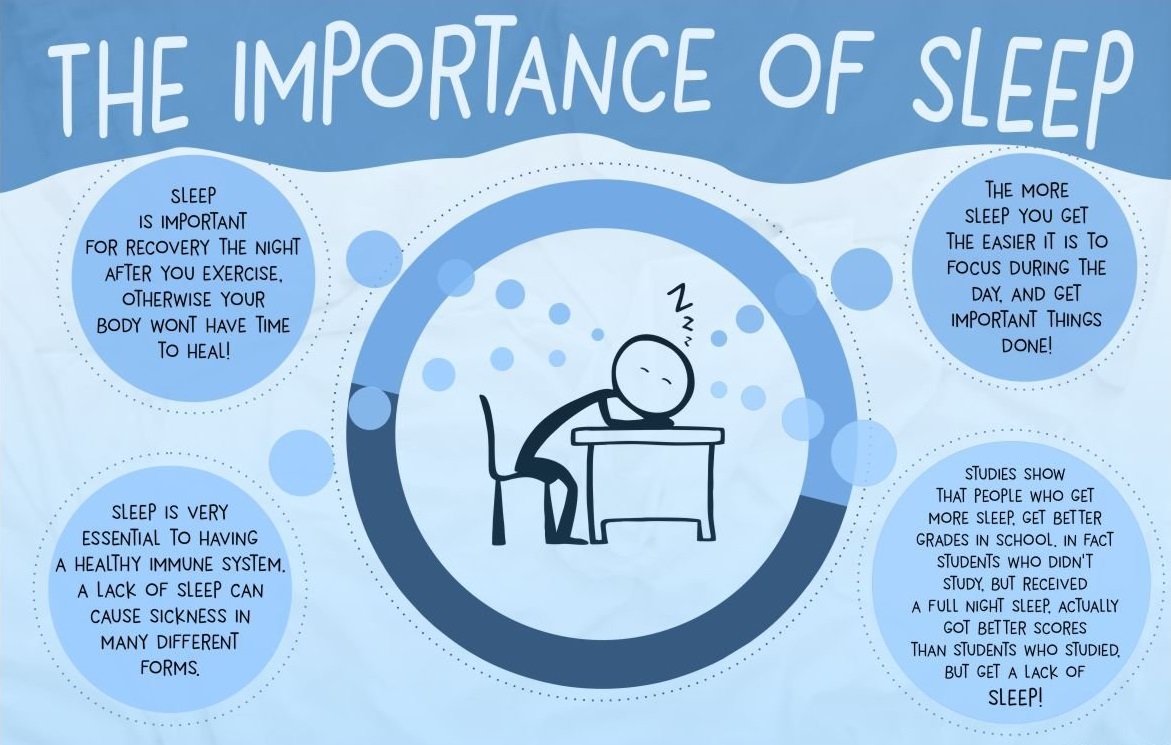-
Physical Health:
- Restoration: Sleep allows the body to repair and rejuvenate. It helps with muscle growth, tissue repair, and the release of growth hormones.
- Immune Function: A lack of sleep can weaken the immune system, making you more susceptible to infections and illnesses.
- Weight Management: Poor sleep is linked to weight gain and obesity. It affects hormones that regulate appetite, making you more likely to overeat.
- Heart Health: Sleep is essential for cardiovascular health. It helps regulate blood pressure and reduces the risk of heart disease and stroke.
-
Mental Health:
- Cognition: Adequate sleep is crucial for cognitive functions such as memory, concentration, problem-solving, and decision-making.
- Emotional Regulation: Lack of sleep can lead to mood swings, increased irritability, and difficulty managing stress.
- Mental Health Disorders: Sleep plays a role in the development and management of mental health conditions, including depression, anxiety, and bipolar disorder.
-
Emotional Well-Being:
- Stress Reduction: Quality sleep helps in reducing stress levels and enhancing resilience to stressors.
- Emotional Balance: Sleep is essential for maintaining emotional stability and regulating emotional responses.
-
Daytime Performance:
- Productivity: Adequate sleep is critical for optimal work and academic performance. It enhances creativity, problem-solving, and productivity.
- Safety: Sleep deprivation can impair reaction time and decision-making, leading to accidents, especially when driving or operating heavy machinery.
-
Longevity:
- Studies suggest that getting sufficient sleep is associated with a longer lifespan. Chronic sleep deprivation has been linked to a higher risk of premature death.
-
Hormonal Regulation:
- Sleep helps regulate various hormones, including cortisol (stress hormone), insulin (blood sugar regulator), and leptin/ghrelin (appetite-regulating hormones).
-
Memory Consolidation:
- During sleep, the brain consolidates memories, helping to retain information learned during the day.
-
Physical Performance:
- Athletes rely on good sleep for optimal physical performance, including muscle recovery and coordination.
In summary, sleep is a fundamental pillar of health and well-being. Consistent, quality sleep is essential for physical health, mental acuity, emotional balance, and overall vitality. While individual sleep needs may vary, adults generally require 7-9 hours of sleep per night. Prioritizing good sleep hygiene practices and addressing sleep disorders when necessary is crucial for maintaining a healthy and fulfilling life.




Comments (0)